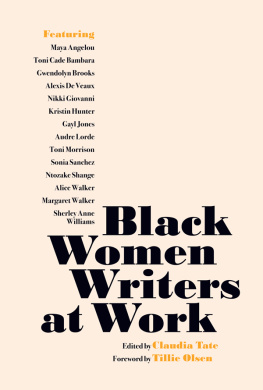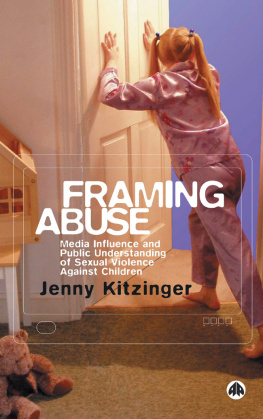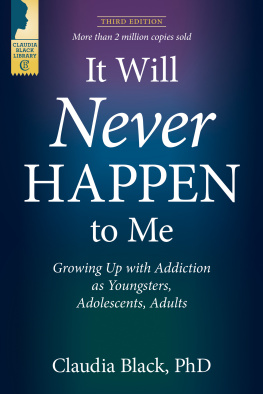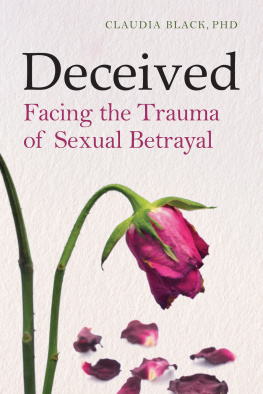CONSTRUCTING LIVED EXPERIENCES
Constructing Lived Experiences
Representations of black mothers in child sexual abuse discourses
Claudia Bernard
Goldsmiths College, University of London
First published 2001 by Ashgate Publishing
Reissued 2018 by Routledge
2 Park Square, Milton Park, Abingdon, Oxon OX14 4RN
711 Third Avenue, New York, NY 10017, USA
Routledge is an imprint of the Taylor & Francis Group, an informa business
Copyright Claudia Bernard 2001
All rights reserved. No part of this book may be reprinted or reproduced or utilised in any form or by any electronic, mechanical, or other means, now known or hereafter invented, including photocopying and recording, or in any information storage or retrieval system, without permission in writing from the publishers.
Notice:
Product or corporate names may be trademarks or registered trademarks, and are used only for identification and explanation without intent to infringe.
Publishers Note
The publisher has gone to great lengths to ensure the quality of this reprint but points out that some imperfections in the original copies may be apparent.
Disclaimer
The publisher has made every effort to trace copyright holders and welcomes correspondence from those they have been unable to contact.
A Library of Congress record exists under LC control number: 2001090206
ISBN 13: 978-1-138-72719-9 (hbk)
ISBN 13: 978-1-315-19093-8 (ebk)
The process from research to book has been a long and challenging one, and the numerous people who contributed support along the way have made this book possible. Foremost, I would like to thank the women who courageously shared their stories and experiences with me. I am deeply grateful to these women who gave so much of themselves in the interviews. I would also like to thank those individuals, agencies and groups who assisted me in locating women to interview. I thank the Research Committee, Goldsmiths College, University of London, for providing the funds for me to complete my research. I would especially like to thank the British Sociological Association Violence Against Women Study Group, who provided a supportive space for me to explore some of my ideas for this book. Close friends Khalida Khan and Pam Menzies contributed both concrete and emotional support in numerous ways during the research and writing of this book. Also, Peter Lachman was most generous in providing creative and emotional space in Maine, USA, where many of my ideas for this book crystallised, and again in South Africa, which energised me for working on the last two chapters of this book. I particularly thank him for his generosity. I am most indebted to Christine Nugent for her intellectual and emotional support, and general encouragement during this project. I especially thank her for reading and commenting on several chapters of this book. I am also grateful to Danielle Turney for her insightful comments on portions of this book, also for our many conversations over the years that have informed some of my thinking. My sister, Heather Bernard, and cousin, Dawn Walton, provided general support throughout and are a good source of strength. My editors have been patient along the way and I wish to thank them for seeing this project through to completion. Finally, I am especially grateful to my partner, David Katz, whose endless amount of support, love, and encouragement sustained me during the process of writing this book.
Aims of the Book
This book is centrally concerned with representations of black mothers in child sexual abuse discourses. Prevailing paradigms of intrafamilial child sexual abuse proffer ideas of the "collusive mother" that exert a powerful influence on intervention strategies in child protection cases. In challenging such ideas, a critical starting point of this book is that whilst all mothers of abused children may have some common experiences, divisions constructed around race and social class create a very different set of circumstances within which they respond to the abuse of their children. In centring attention on black mothers' experiences, I argue that to fully understand their reactions and responses necessitates an examination of their lived experiences within its broader social context. Through a critical discussion of the nature of mother-blame in child sexual abuse discourses, I seek to illuminate the specificity of black mothers' situations whilst critically assessing the structural, cultural and emotional factors that interplay for them. By providing an exploration of the links between race and gender as important markers for experience, I employ the intersectionality paradigm to call attention to the notion that black mothers occupy a range of multiple and contradictory positions that have implications for their help-seeking and protective strategies in the aftermath of abuse.
Thus, a central concern of the book is to explore the experience of child sexual abuse within black families to develop paradigms that are grounded in knowledge of black mothers' lived experiences. The focus on black women as mothers acknowledges that they are usually the designated carers with primary responsibilities for bringing up children. As a consequence, they are usually the parents left to deal with child protection services in the aftermath of abuse. Utilising data drawn from interviews conducted with black mothers whose children had been sexually abused, this book seeks to interrogate through the lens of black feminist thinking how race and gender dynamics shape black mothers' responses. It is my contention that in order to deepen understandings of how black mothers' responses to the sexual victimisation of their children are constructed and negotiated, the racially gendered dimensions of their experiences require examination to elucidate how multiple oppressions cohere for them.
Rationale for the Book
The stimulus for this book derives from my first-hand experiences of working with mothers as a child protection social worker in the statutory sector. I was struck then by the extent of mother-blame that overwhelmingly characterised social work intervention with families where child sexual abuse occurred. At the same time, I observed that mothers' responses to the abuse of their children were repeatedly represented as attributes of their parenting abilities. Most significantly, in our society where mothers primarily are the main carers of children, whether sexual abuse is intrafamilial or extrafamilial they are the parent who is most likely to encounter social welfare agencies and whose parenting most comes up for an intensive scrutiny. Therefore, whether consciously or unconsciously, professional helpers always managed to shift the burden of responsibility on to mothers and proffered the prevailing view of mothers' culpability in the abuse of their children. I found that one of the hardest attitudes to break down was the deeply entrenched belief that mothers were complicit in the abuse of their children. But perhaps most damaging of all is that underlying the claim of mothers as collusive is the assumption that they are actively or passively complicit in the abuse of their children; they were thus often charged with failing to protect. In particular, I was surprised and alarmed at the way in which professional helpers employed the collusive paradigm and rarely questioned the notion of gendered power relations as an important construct in discourses of child sexual abuse.







